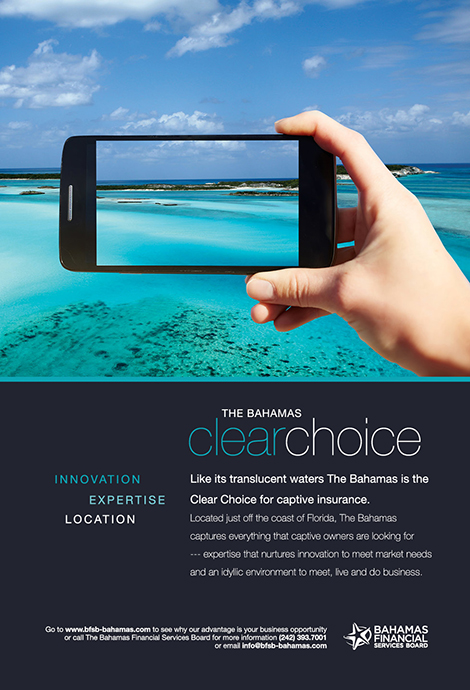SRS
CIT hears from SRS president and CEO Brady Young, who charts the captive management and consultancy firm’s progress since its split from Credit Suisse
SRS is the result of a management buy-out in 2002—how did that come about and what sort of direction did you want to take the business in?
At the time, Credit Suisse was in the middle of exiting the insurance business. As part of that, our business was not viewed as a strategic priority. Credit Suisse looked at different exit options and decided that selling to management was the cleanest way to exit the business. That was the genesis of Strategic Risk Solutions.
My feelings at the time, which haven’t really changed much, were that we could carve out a nice niche in the captive business focusing entirely on captive consulting and management. I thought there was a need for a strong independent firm and at the time the business was very much dominated by the broker-owned captive management firms. This was before the big shake-up in the brokerage business, so our timing was good.
Personally, I was tired of the management responsibilities that come with working at a large company. I spent most of my time managing people, going to meetings and that sort of thing. I grew tired of it. I wanted to focus more on working with clients and being more involved in the business. Buying SRS and being able to work with clients and get my hands dirty were motivations of mine.
Do clients appreciate it when a senior figure such as yourself is directly involved?
Clients like having access to senior members of the firm both for their experience in the captive industry and the ability to make decisions on behalf of the firm. We now have more than 200 clients under management, so my own ability to meet all of the clients is limited, but I try to spend as much time interacting with clients as possible. We have also attracted a great group of senior people over the years, many of whom have been at the forefront of the industry. They are actively involved with our clients and have developed strong client relationships at SRS and before. As a firm we make sure that a director and/or employee owner of the firm is involved on all our accounts.
What direction have you taken the company in since 2002?
For the large part, we have just gone deeper in the captive business. We really thought we should stay focused, so we have resisted the temptation to get into other businesses and branch out. I’m often asked why we don’t look to move into asset management or brokerage, but I say that everybody else’s business always looks easier than your own and for the most part there are a lot of good firms that do those things. At the same time, a lot of those firms are our trading partners, so we stick to what we do and we like to deal with people who specialise in what they do.
SRS recruited Jeff Kenneson, who will have a particular focus on the small captive market—why is SRS targeting small captives, and what does it hope to achieve?
We’ve been active in the small captive market for some time, but we haven’t had a focused proactive effort. We decided that it made sense to put a little more effort in that space.
In terms of what I hope to achieve, it is more about quality than quantity. With our experience and skill set, we can service the small captive segment of the market well. We’re going to approach it on a controlled, managed basis. We’re not trying to grow it too fast and oversell or over-promote it. We’re going to pick clients that are a good fit for us and value our approach to the business, which I would describe as perhaps a little more conservative than some other firms that are out there.
We’ve set some loose goals about developing something like 100 small captive clients over the next several years. There are a lot of firms that already do a lot more than that, so we would still be a relatively small player in that segment of the market. But the key is that our approach fits well with those kinds of clients.
How much of an opportunity does the small captive market represent?
The middle market in the US, if you look at companies with $50 million or more in revenue, is very large. There are thousands of companies that are potential parents for captives, but their risk profile is different to traditional captives. Fortune 1000 captives typically cover workers’ compensation, liability, and more basic insurance coverage and are used as an alternative to buying commercial insurance or self-insuring. Small captives are often looking at uninsured risks, but ones that are critical to the success of the business, for example, loss of key employees or business partners. They’re kind of fun because there is an opportunity to be more creative and do some different things. We enjoy the chance to be cautiously creative.
How has SRS had to change in the past decade to keep up with trends affecting its clients?
Clearly, the amount of scrutiny that our clients are under has increased. With some of the problems going on in the financial industry, I think the expectations that clients have of us, and the standards they hold us to, have gone up. We’ve always operated under strong internal peer review and professional standards, but several years ago we decided to take it a couple of notches higher. We decided we wanted to be one of the first captive management firms to get a Statement on Auditing Standards 70 certification (it’s now called the Statement on Standards for Attestation Engagements 16). There are two levels to that review, but together they show that internal procedures and controls are as advertised, and are actually carried out. We’ve done those and passed.
The benefit of an external audit is that it forces us to continually refine what we do and how we do it. Having an outside firm come in and validate it gives our clients some additional comfort. It also makes the audit process with our clients go a little smoother, because a lot of them rely on us being audited.
How much scrutiny are captives under these days?
In the US, there are regulators in the different states, the IRS, and then there are the auditors that work for the parent companies of the clients, so there are a lot of different constituents that we need to keep happy and respond to. The captive world, just like every other financial business, has become more complex and expectations and demands are higher for everyone.
We have to spend more time and make more resources available. It’s not insurmountable—it’s just a part of the business—but there is a lot more to be done now than in the past. In the end, if you’re in the business you have to do it and do it well. You have to be consistent and sweat the details or there will be unhappy regulators and auditors, and if that happens, there will be unhappy clients.
How demanding have captive regulators become?
I don’t think regulators have become more demanding or unreasonable. The experienced regulators understand what the issues are and can zero in where they need to and ask the right questions. I think the less experienced domiciles are learning on the job. They’re feeling their way into the business—they’re not like a Vermont or Bermuda with 25 to 30 years of experience regulating captives. But that’s not a problem, because we work very well with the regulators and see it as a kind of collaborative relationship.
We’ve formed quite a few captives and I’ve said it a lot to regulators: I’m more concerned about the captive being successful than you are. I don’t want a captive to blow up. We all want strong, successful captives and not insolvent, financially weak ones. Nobody needs the aggravation, so we work hard to do due diligence on the clients and the captive and make sure we’re comfortable with the business plan and the clients before we get involved





